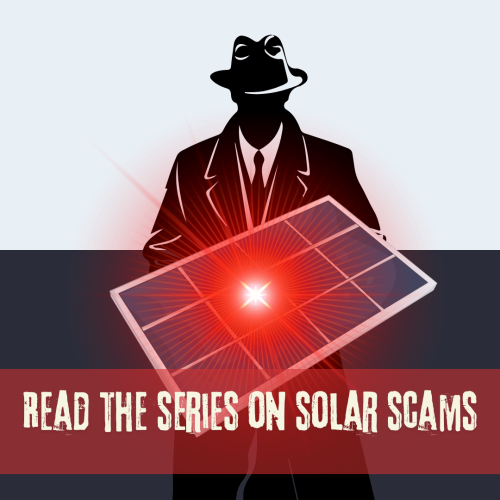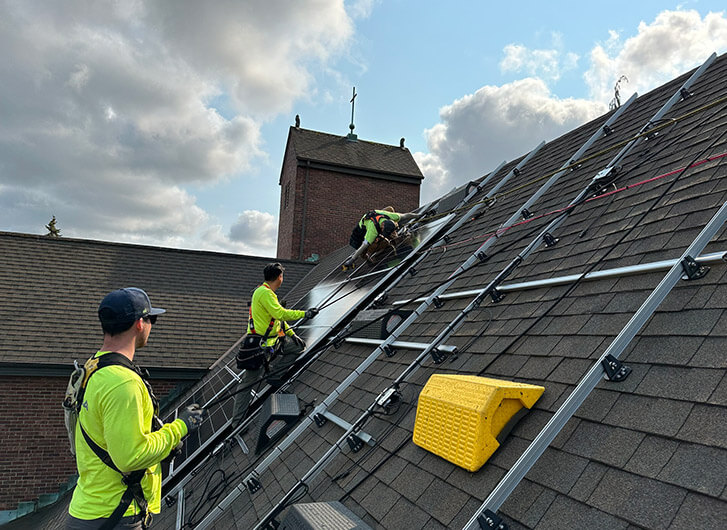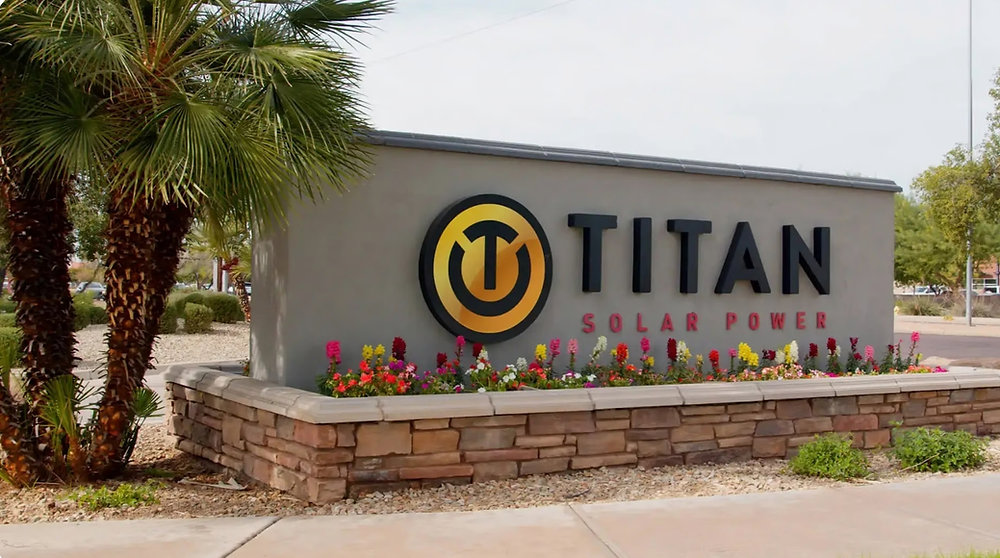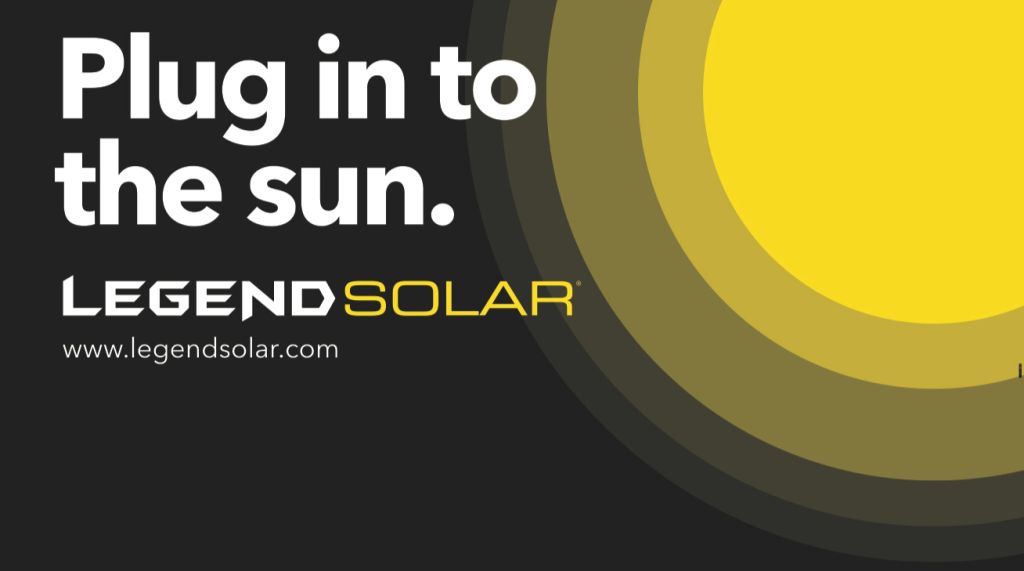How To Shop For Solar
Without Getting Scammed
Installing solar panels on your home is a smart investment. It can lower your energy bills and reduce your carbon footprint.
But knowing who to trust can make all the difference in an industry filled with trusted experts and shady operators.
Some solar deals seem too good to be true, and they often are.
Homeowners may face unexpected costs, broken promises, and costly problems.
With tempting ads that promise “free solar” and strong sales tactics, homeowners can easily fall for solar scams, costing them thousands.

Want To Know The Truth About Those Free Solar Ads?
As rooftop solar becomes more popular, some large national installers are banking on quick decisions and delayed regrets. Unfortunately, the promise of ‘free solar’ often masks the fine print that can leave homeowners with unexpected costs and long-term commitments.
Let’s pull back the curtain on the most common ‘free solar’ pitches, breaking down how these offers work—and what they really cost.

Read The Solar Scams Series
Learn how shady companies hide fees and overpromise savings
Don’t get duped by imposters claiming to be from your utility
These ‘cheap’ loans may cost thousands more than you think
Salespeople love saying it is—here’s why they’re wrong
Promises of total energy savings often don’t add up
This business-only tax perk is being misused in sales pitches
What happens when your roof needs work and your installer ghosts you
Some companies falsely claim their from your utility to earn your trust
Why Choose A Local Solar Installer?
Not all solar installers are created equal.
Choosing a solar company isn’t just about getting solar panels on your roof; it’s about trusting a long-term partner.
That’s why it’s essential to work with companies that are part of respected industry organizations like WASEIA (Washington Solar Energy Industries Association) and OSSIA (Oregon Solar + Storage Industries Association).
A&R Solar is proudly a member of both WASEIA and OSSIA!
These organizations play a vital role in protecting homeowners and upholding the integrity of the solar industry in the Pacific Northwest by:
- Setting high ethical and technical standards that members must follow.
- ️️️Providing ongoing training and education for installers and solar professionals.
- Advocating for fair and transparent solar policies that benefit homeowners and local communities.
- Serving as a trusted resource for consumers looking to verify a company’s credibility
When you choose a solar installer who is a member of WASEIA or OSSIA, you’re choosing a company that:
- Is deeply rooted in the community, not a fly-by-night national operation chasing temporary incentives.
- ️️️Stakes its reputation on doing the job right, because it plans to be around for decades—not just until the next rebate dries up.
- Offers high-quality service and real incentives, not misleading promises or one-size-fits-all systems.
- Delivers long-term support, instead of disappearing once the system is installed.
The Risk of a Solar Company Closing

Titan Solar: A National Failure

But it’s not just small regional companies that fail.
Titan Solar Power, one of the largest residential solar installers in the U.S., abruptly shut down in June 2024, leaving thousands of homeowners in the dark.
Customers who had already invested thousands of dollars in their systems were left with unfinished or malfunctioning installations and no way to contact the company for service or support.
Many reported that they had been promised energy savings that never materialized, and some were locked into high-interest loans for systems that didn’t work.
The Lesson: Choose A Reliable Solar Installer
The collapse of national companies like Titan Solar Power proves that choosing a solar provider isn’t just about price—it’s about reliability, trust, and a proven track record. Homeowners should prioritize working with stable, established local companies that have a history of standing by their customers.
To minimize these risks, it’s crucial to choose reputable, established solar providers with a track record of financial stability and excellent customer service. At A&R Solar, we’ve been serving our community since 2007, standing by our work and our customers every step of the way.
No. There is no state-run, no-cost solar program in Washington or Oregon for residential homeowners. Some installers exploit this misconception with misleading ads that imply solar can be installed entirely free of charge.
In reality:
- Most homeowners pay at least 70% of system costs after incentives.
- Federal tax credits (30%) and state sales tax exemptions help reduce costs, but you’ll still pay the rest via cash or financing.
Not in cash. Washington law (RCW 80.60) requires utilities to credit your account with kilowatt-hour credits, not cash. These credits:
- Offset your future electricity usage.
- Expire annually on March 31st.
If someone says “you’ll get paid,” ask whether they mean credits or cash—they’re not the same.
⚠️ Be careful. In-house financing promotions may:
- Inflate system costs
- Qualify as a rebate (which affects your tax credit)
- Simply defer payments (you still pay interest)
Always ask:
- Is this a true subsidy or a deferral?
- Will my tax credit be affected?
- What are the total lifetime loan costs?
Look for:
- Membership in WASEIA or OSSIA
- Transparent bids and detailed equipment lists
- 3rd-party financing options (like PSCCU)
- Strong local reviews and verified projects
Avoid:
- National companies with poor service track records
- Vague or too-good-to-be-true pricing
- High-pressure sales tactics such as creating a sense of false urgency
Research is key. To ensure an installer is reputable:
- Licensing and Certifications: Confirm they hold necessary state licenses and are certified to apply for state solar incentives
- Professional Associations: Membership in organizations like the AMICUS solar cooperative
- Customer Reviews: Check platforms like Better Business Bureau (BBB) and SolarReviews for feedback
- References: Request references from homeowners
When evaluating proposals:
- System Size and Production: Ensure estimates are based on your actual energy usage
- Equipment Quality: Compare panel and inverter brands, efficiencies, and warranties
- Total Cost and Financing: Look at the overall price, financing terms, interest rates, and any dealer fees
- Performance Guarantees: Check if they offer production guarantees or warranties.
- Installation Timeline: Understand the projected start and completion dates
Ready to Go Solar With Confidence
Contact A&R Solar today to take the next step toward a cleaner, cost-saving future—with a team you can trust.


